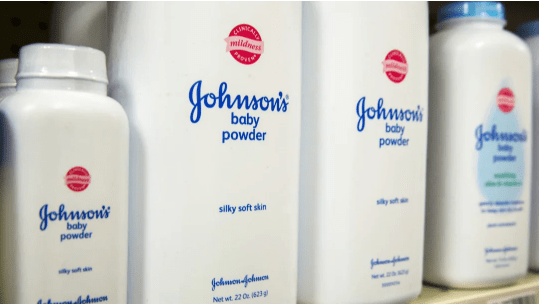Thousands of individuals across the UK are taking pharmaceutical giant Johnson & Johnson (J&J) to court, accusing the company of knowingly selling talcum powder laced with asbestos a substance linked to deadly cancers.
Up to 3,000 claimants have joined a landmark High Court case in London, alleging they or their loved ones developed ovarian cancer or mesothelioma as a direct result of using Johnson’s Baby Powder.
The lawsuit marks one of the largest product liability cases ever brought in the UK.
“There exist very few, if any, commercially exploited talc deposits in the world which do not contain asbestos and… all of the mines supplying the defendants contained asbestos,” Michael Rawlinson KC, representing the claimants
J&J Accused of Suppressing Cancer Risks
Legal documents filed on Thursday argue that J&J, Kenvue UK, and other related subsidiaries were fully aware of the potential risks.
They allegedly “concealed” the dangers from the public for decades while continuing to promote their baby powder as safe and pure.
Notably, J&J only reformulated its talcum-based powder in the UK in 2023, replacing it with corn starch amid growing legal and scientific pressure.
According to Michael Rawlinson KC, the company had access to internal reports and scientific studies that pointed to the presence of asbestos in the talc used yet chose to “suppress information” that could have raised alarm.
He further claimed J&J “lobbied regulators” and even sponsored research aimed at downplaying the dangers of asbestos in an effort to protect brand reputation and profits.
Victims Speak Out: Decades of Trust, Now Betrayed
Among the claimants is 75-year-old Janet Fuschillo, who says she had used Johnson’s Baby Powder since the 1960s and was diagnosed with ovarian cancer seven years ago.
“I used talc on myself and all four of my children because we were told it was pure, and it was good for you. It’s a source of great concern and anger that I used talc on my children,” she said.
Another heartbreaking testimony comes from Patricia Angell, whose husband Edward a fit and healthy electrician died in 2006 from mesothelioma, just weeks after his diagnosis.
“He would come home from work and shower every day and use J&J’s talc.
Talc was mentioned on Edward’s autopsy report, along with asbestos strains found in contaminated talc,” she shared.
She says her husband was “robbed” of 19 years of life, and her children of their father.
Thousands of UK families are demanding justice from Johnson & Johnson, claiming the company’s baby powder once a trusted household staple may have silently exposed them to lethal asbestos fibres. This High Court case could change how corporate accountability is handled in the UK forever.
How the Powder Was Inhaled
The case also points to the way the product was applied. Rawlinson noted that squeezing or shaking the baby powder bottle produced a lingering cloud of dust one that could easily be inhaled by users.
Mesothelioma, often caused by inhaling asbestos fibres, usually forms in the lungs and has a long latency period, meaning symptoms may not appear for decades. According to the NHS, the disease is almost always linked to asbestos exposure.
J&J and Kenvue Deny the Allegations
Kenvue previously part of J&J and now listed as a separate entity issued a firm denial of all claims.
“We sympathise deeply with people living with cancer. We understand that they and their families want answers that’s why the facts are so important. The high-quality cosmetic grade talc that was used in Johnson’s Baby Powder… did not contain asbestos, and does not cause cancer.”
The company maintains that independent testing by health authorities, universities, and labs around the world supports the safety of its products.
This lawsuit adds to a growing global tide of legal challenges against Johnson & Johnson. The company has already faced billions in payouts across the United States in similar talc-related cancer claims.
Legal experts believe the UK case could set a new precedent for consumer protection and corporate liability.
As the court proceedings unfold, the focus remains on one pressing question: Did Johnson & Johnson prioritise profit over public safety? For now, thousands of families await the answer.






